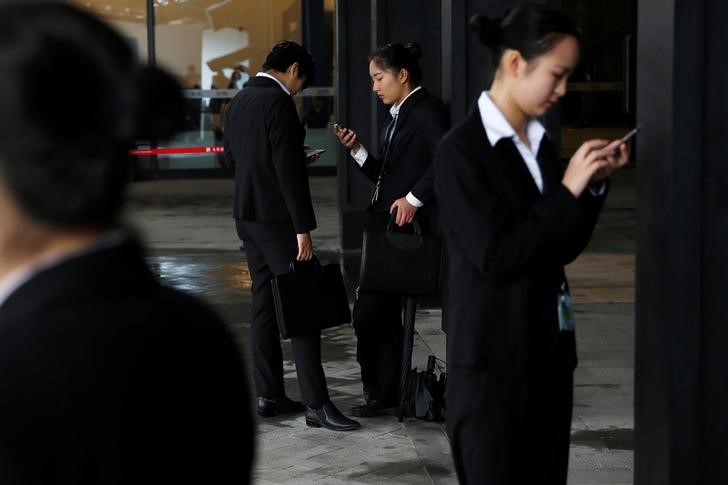Image: People check their phones during the third annual World Internet Conference in Wuzhen town of Jiaxing, Zhejiang province, China November 17, 2016. REUTERS/Aly Song/File Photo
By Nqobile Dludla
JOHANNESBURG (Reuters) – By the end of 2016, almost half of the world’s population will be using the internet as mobile networks grow and prices fall, but their numbers will remain concentrated in the developed world, a United Nations agency said on Tuesday.
In the world’s developed countries about 80 percent of the population use the internet. But only about 40 percent in developing countries and less than 15 percent in less-developed countries are online, according to a report by the U.N.’s International Telecommunications Union (ITU).
In several of Africa’s poorer and more fragile countries, only one person in 10 is on the internet. The offline population is female, elderly, less educated, poorer and lives in rural areas, said the union, a specialized agency for information and communication technologies.
Globally, 47 percent of the world’s population is online, still far short of a U.N. target of 60 percent by 2020. Some 3.9 billion people, more than half the world’s population, are not. ITU expects 3.5 billion people to have access by the end of this year.
“In 2016, people no longer go online, they are online. The spread of 3G and 4G networks across the world had brought the internet to more and more people,” the report said.
Telecoms and internet companies are expanding as more affordable smartphones encourage consumers to browse the internet, causing demand to grow for data-heavy services. However, less-developed countries – LDCs – still trail the rest of the world.
“Internet penetration levels in LDCs today have reached the level enjoyed by developed countries in 1998, suggesting that the LDCs are lagging nearly 20 years behind the developed countries,” the report said.
It blamed the cost of services and of extending infrastructure to rural and remote customers and the high price of mobile cellular use.
(Reporting by Nqobile Dludla, editing by Larry King)
Copyright 2015 Thomson Reuters. Click for Restrictions.


